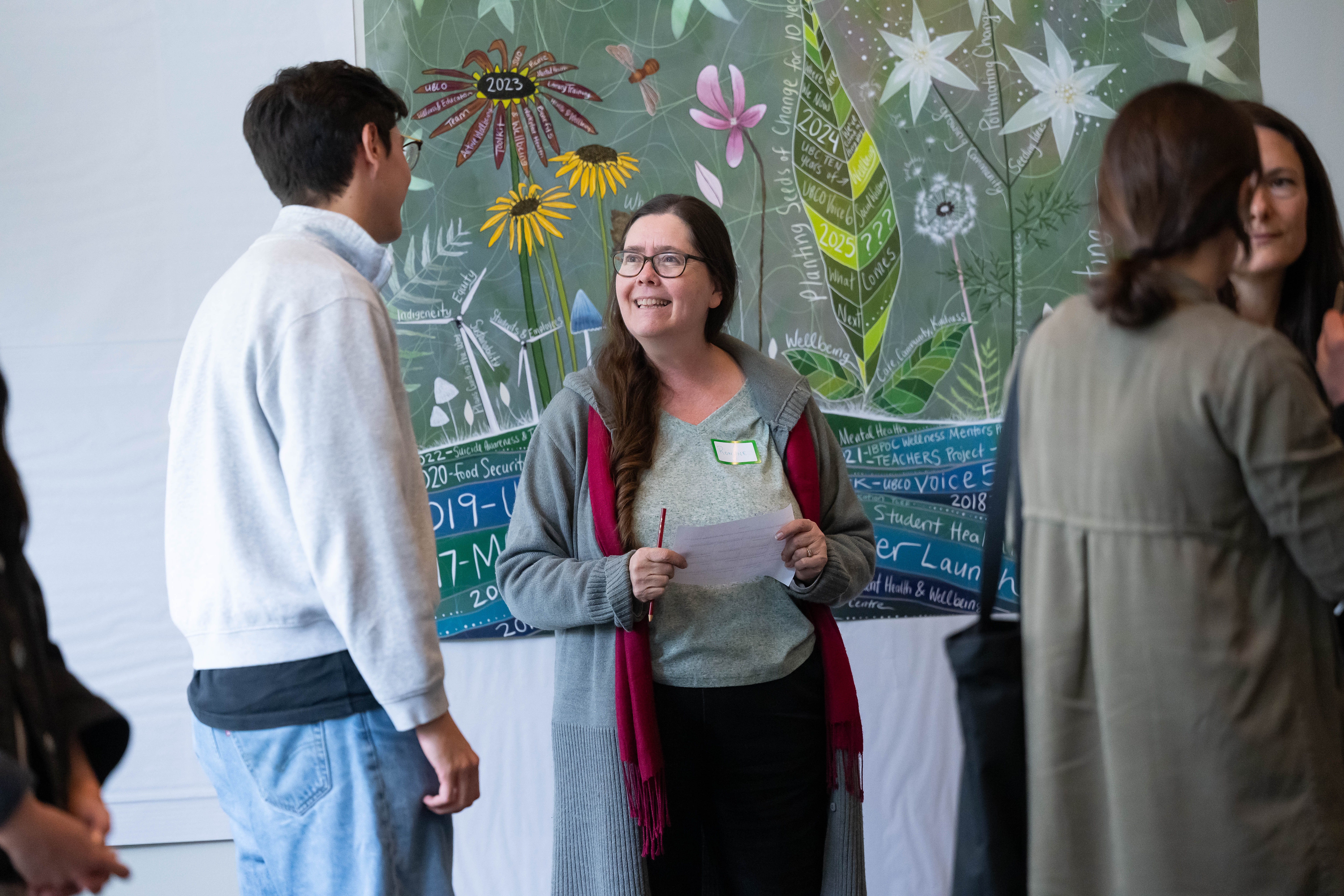In 2024, UBC Wellbeing reached a significant milestone, marking a decade since its establishment. On April 4th and 10th, over 150 students, faculty, staff and community members from Vancouver and Okanagan campuses, respectively, gathered to celebrate the collective efforts that have made our university a better place to live, work, learn, and play.
Formed in 2014, UBC Wellbeing emerged as a collaborative, whole-university initiative to embed health and wellbeing in all aspects of university culture and life. Guided by the Okanagan Charter for Health Promoting Universities and the Wellbeing Strategic Framework, wellbeing work has been woven through strategic plans, featured in research, and integrated in a range of programs, campaigns, and initiatives led by teams and units across the university.
Reflecting on UBC Wellbeing’s milestone, Matt Dolf, Director of the Office of Wellbeing Strategy and a key staff member since its founding years, shared, “The journey of UBC Wellbeing over the past decade has been remarkable, and reflects our shared commitment to cultivate a culture of health and wellbeing through a systems-wide approach across our campuses.”
Celebratory events held on both campuses offered attendees the opportunity to connect with peers and colleagues, engage in interactive student-led activities, enjoy plant-forward refreshments, and hear inspiring stories from collaborators and leaders.

Attendees were invited to share a message of gratitude for their peers or colleagues at the Warm Fuzzy Station by contributing to a digital Padlet board or crafting personalized cards. On the Vancouver campus, Thrive coffee card vouchers were provided, inspiring social connection beyond the event with complimentary hot beverages for two at the Food Hub Market.

Engagement activities on both campuses included the Vision Station, where attendees were invited to envision the future trajectories of wellbeing at UBC. This original piece created by local artist and climate advocate Meghan Wise, blended significant milestones from the UBC Wellbeing timeline with elements of nature, sparking dialogue and reflection.
At the Okanagan campus, the anniversary celebration was a part of the annual Classroom Wellbeing and Accessibility Awards (formerly the Golden Apples Awards). Led by students and supported by Campus Wellness and the Disability Resource Centre, these awards recognize the contributions of staff and faculty who have championed student health, wellbeing or accessibility. This year, over 250 student-written nominations were received, with 12 recipients selected for the awards.
Reflecting on the anniversary celebration, Nikki Reiter, Continuous Improvement Program Manager, Project Management Office at UBC Okanagan, shared, “The anniversary celebration was a testament to the dedication and passion of our community members who continuously strive to create an inclusive and supportive environment for all at UBC Okanagan.”
These in-person gatherings served as important reminders of the progress made to advance health, equity, sustainability, and wellbeing at UBC, while also highlighting the ongoing commitment and collaborative effort needed to further build healthy campus communities across our university.
Alex Bayne, Managing Director of Human Resources at UBC Okanagan, emphasized, “Over the past 10 years I have seen faculty and staff support the health and wellbeing of students, colleagues and our community members on both campuses. The actions we have collectively taken remind us to focus on our own health and wellbeing and that of others. These actions have helped underpin the social fabric of our university culture.”
For more highlights from the UBC Wellbeing community, visit the Stories section of our website or follow @ubcwellbeing on Instagram here.
